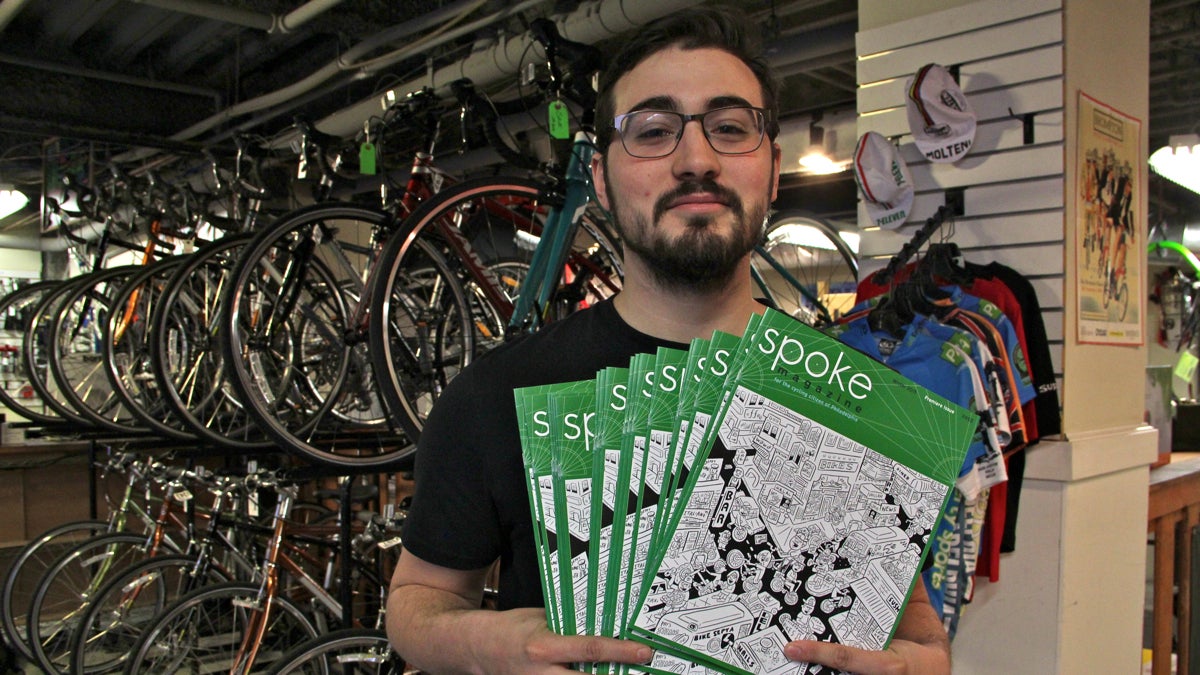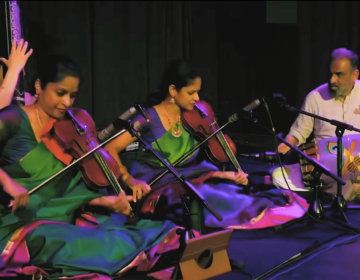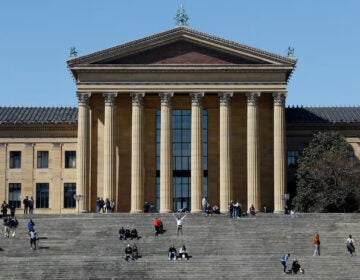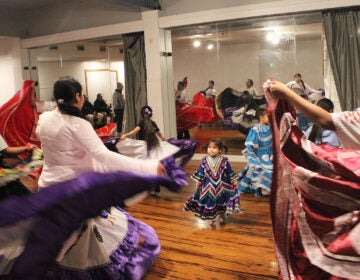Spoke offering a magazine home to Philly cyclists

Alex Vuocolo, editor of the new urban cycling magazine Spoke, drops off some copies at Trophy Bikes on Second Street. (Emma Lee/WHYY)
It’s out with the old, in with the new: the free bicycle ‘zine — “Urban Velo,” produced nationally for seven years out of Pittsburgh, Pa., with a punk attitude — has just ceased publication.
Its counter space at Trophy Bikes in Philadelphia’s Northern Liberties neighborhood is now occupied by issue #1 of “Spoke.”
Biking in the city is not just for punks anymore, said “Spoke” co-founder, Alex Vuocolo.
“It is focusing on the commuter, and issues affecting all cyclists,” he said. “So that means infrastructure, education, policy, politics, and the culture underlying it.”
The first one is the toughest: the founding staff of five volunteers — including Vuocolo — all chipped in to pay for the initial print run, helped by a handful of advertisers and an IndieGoGo crowdfunding campaign.
The initial issue tracks public funding for bike lanes, explores social media as a crime deterrent, and interviews people who make their living on bikes. “If you care about urbanism and density, cycling is a big piece of that,” said Vuocolo.
Vuocolo is undaunted by the so-called death of print. The inspiration for “Spoke” came from the success of another local free, print magazine, “Grid,” with its narrow focus on issues surrounding sustainability in Philadelphia.
Even a modest print run of 7,500 copies requires a critical mass of hot-button issues, readership, and advertisers in Philadelphia, all focused on cycling.
“Even a lot of online publications succeeding because they have a focus. That’s not a liability anymore,” said Vuocolo. “There are enough enthusiastic people to justify the existence of a cycling magazine, or a sustainability magazine, or a magazine about local music.”
Vuocolo says “Spoke” magazine can corner a market not available to online magazines — people looking for something to read while in brick-and-mortar bars, coffee shops, and bike shops around Philadelphia.
In the days of “Urban Velo,” bicycling in the city could feel like the wild frontier. “Spoke” wants to chronicle the next phase of bicycling.
“We’re getting to the point of cycling infrastructure where the low-hanging fruit is gone,” said Vuocolo, pointing to uncongested roads selected for bike lanes. “Going forward, any new bike lanes are going to require devoted political will and funding. We want to impress the cycling community that you need to be informed, and we want to be on the front line of pushing this forward, especially as we get a new mayor.”
WHYY is your source for fact-based, in-depth journalism and information. As a nonprofit organization, we rely on financial support from readers like you. Please give today.





